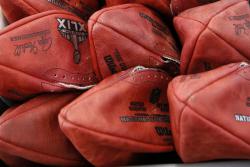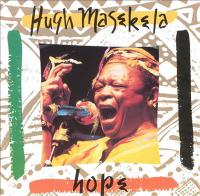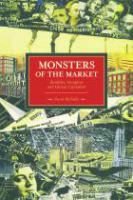
Deflategate has driven virtually every other story off of the news shows and talk shows for several days now. At the center of the controversy is Tom Brady, quarterback of the New England Patriots, who, a National Football League report says, very likely knew that Patriot employees were involved in deflating several footballs to give Brady and the Patriots an advantage in the American Football Conference Championship Game of the 2014 season. Pundits have called the Brady and his team ”cheaters” and “liars,” though interestingly Governor Chris Christie—also accused of being a cheater and a liar—defends Brady, saying people are just jealous of those whose lives seem so perfect.

Hilton Obinzenger is a poet and a long-time informed critic of Zionism and Israeli policy toward the Palestinians. His new poem, Treyf Pesach (Dirty Passover), is a blunt speaking and not unhumorous effort to ask fellow Jews how they can celebrate the slave insurrrection in Egypt millennia ago and yet be struck dumb by the Israeli government's dissembling and bloody practices toward "the stranger in our midst" today. You can read Obinzenger's smart, snappy work here, and visit his website here.
Dedicated to Indiana’s new Religious Freedom Restoration Act
Global Cities and Diasporic Networks in the aftermath of Syriza’s Victory
 Since the pressures of international financial capital and its subservient political elites will continue with the same if not greater intensity, it is also certain that a new cycle of social mobilization in Greece and the rest of Europe will begin again.
Since the pressures of international financial capital and its subservient political elites will continue with the same if not greater intensity, it is also certain that a new cycle of social mobilization in Greece and the rest of Europe will begin again.

Cafes bring memories of the unpleasantly bleak days of my undergraduate studies in which I sought my peace of mind in the rough and stormy sea of Jean-Paul Sartre’s world, his philosophy and his novels shining light on the notion of loneliness for me. And I lived inside his books and through the characters he created. However, the more I grew critical, the stranger I found Sartre’s intellectual legacy.
Speech in Acceptance of the National Book Foundation Medal for Distinguished Contribution to American Letters
 To the givers of this beautiful reward, my thanks, from the heart. My family, my agents, my editors, know that my being here is their doing as well as my own, and that the beautiful reward is theirs as much as mine.
To the givers of this beautiful reward, my thanks, from the heart. My family, my agents, my editors, know that my being here is their doing as well as my own, and that the beautiful reward is theirs as much as mine.

Hugh Masakela, the great South African trumpet player was joined by Vusi Mahlasela, the guitarist and singer in a “Twenty Years of Freedom” concert at Queens College on February 19, 2015. They played many of Masakela’s classics of the 1960s and 70s such as the lovely 1968 hit “Grazin’ in the Grass,” the joyful and inspiring“Bring Back Nelson Mandela”, and the sad “Stimela – the Coal Train”, to an audience many of whom had been supporters of the freedom struggles against apartheid in South Africa until its overthrow in 1994.
review
The “Russian question,” that is, the question of the nature of the Soviet Union, dominated much of Marxist debate throughout the twentieth century as first anarchists and Leninists, and later Trotskyists and Stalinists, and then Maoists argued about the economic, social, and political character of Soviet Russia (and then also of Eastern Europe, China, Cuba, Vietnam, and North Korea).
Words have histories, and history affects meaning. And since the history of the English language is very much bound up with the history of the English Empire, many ordinary words have histories that are subtly, or even covertly, racist, imperialist, or otherwise troublesome. I recently received a letter from a colleague, taking me to task for using the word tribalism in an article. He wrote:
The World Cup is the most widely viewed sporting event around the world. Millions of viewers will tune in Sunday to watch the broadcast of the upcoming final match and cheer on their favorite teams as they battle for the golden trophy. In the United States, the event has become a much anticipated and celebrated source of entertainment – an opportunity for people to show support for their country and an excuse to grab a drink and watch the game with friends at a local bar.
An Interview with David McNally
 [This is part two of an interview with scholar-activist David McNally on the current economic crisis. The first part focused on the crisis itself, its causes, the way in which working life has been reorganized, the perspective of ruling elites in managing the crisis and pursuing austerity policies, and how this should help inform our stance as movement activists.
[This is part two of an interview with scholar-activist David McNally on the current economic crisis. The first part focused on the crisis itself, its causes, the way in which working life has been reorganized, the perspective of ruling elites in managing the crisis and pursuing austerity policies, and how this should help inform our stance as movement activists.
review
The labor- and third-party movements of the late nineteenth and early twentieth centuries have been studied and written about extensively by academics and writers on the left. Most readers of this journal are probably familiar with much of this material. This book, however, is of particular interest today for a couple of reasons. For one thing, the author concentrates on the South and emphasizes the biracial nature of the movement.
A Memoir and Reflection on Badass Boffo Revolutionary Feminist Music
 In Chicagoland, in 1970, almost every teenage girl listened to rock. They considered it their music—hormonal, quasi-outlaw, with screaming guitars and a heavy, driving beat. But it was sooo misogynist! This wasn’t the Beatles’ playful woman-affectionate songs.
In Chicagoland, in 1970, almost every teenage girl listened to rock. They considered it their music—hormonal, quasi-outlaw, with screaming guitars and a heavy, driving beat. But it was sooo misogynist! This wasn’t the Beatles’ playful woman-affectionate songs.
review
For many years the dominant trend in scholarship on C.L.R. James has been to emphasize his cultural and literary writings. Arguably the most popular way to frame his legacy has been to situate him as a forerunner to cultural studies, post-colonial studies, and identity politics. Grant Farred, for example, has criticized “earlier modes of James studies” that addressed “debates that occupied sectarian James scholars” and welcomed “the centrality of cultural studies within James scholarship,” while Brett St. Louis has argued that the “march of identity politics and post-modernism” is “irresistible,” and that James’s work is of value precisely because it “grapples with a proto-post-marxist problematic.”
review
Sit-ins at lunch counters by black students began in Greensboro, North Carolina, on February 1, 1960. Blacks had traditionally not been served there or anywhere in the South at that time. Within a week the sit-ins spread to Durham and Winston-Salem. Eleven of the first sit-ins were within 100 miles of Greensboro. After many arrests, and assaults by white hoodlums, on July 25 all Greensboro stores targeted by the sit-ins agreed to serve blacks on an equal basis.
A distinctive strain within the New Left, both passionate and reasoned
Steve Kindred, my friend, brilliant Students for a Democratic Society (SDS) leader, organizer with Teamsters for a Democratic Union, activist in the struggle to keep the Stella d’Oro plant in the Bronx open, campaigner against a lockout of workers by Sotheby’s auction house—all this, and a thousand other causes. Steve is, for lack of a better word, “gone,” in a New York hospital, suffering from abdominal cancer, which has spread. Having been close to Steve and having admired and loved him now for 50 years, I am very sad.
May 1, 2014
The salad days. Too cold or hot or wet for much of anything this time of year, and rereading E. P.
Americans’ profound cynicism about Washington finds full expression in the wildly popular House of Cards, the Netflix series created by Beau Willimon and based on a novel by Michael Dobbs in which Francis J. “Frank” Underwood (Kevin Spacey), will stop at nothing—including murder—to achieve his political ambitions.
A Slapstick Demolition of Male Supremacy
[Introduction by Naomi Weisstein: My paper, “The Chicago
Women’s Liberation Rock Band 1970-1973: A Slapstick Demolition of Male Supremacy” was presented at the end of March at the Boston University Conference “A Revolutionary Moment: Women’s Liberation in the Late 1960s and early 1970s.” This landmark conference drew a multiplicity of papers, rigorously retrieving a suppressed history, and countering such contemporary notions as that “leaning in” is what the radical women’s liber
With this issue of New Politics, “Words & Pictures” marks its tenth anniversary. From the outset, NP’s editors hoped that this back-of-the-book feature could showcase the work of interesting political cartoonists, past and present, and add a touch of visual interest to the magazine. The feature was introduced just as the magazine itself was undergoing a comprehensive makeover, starting with cover art by Bob Gill and, more recently, Lisa Lyons.
Classical Music, the High Arts, and Workers’ Culture
Last season’s announcement of the New York Philharmonic’s Henry Kravis Award, financed by a seven figure withdrawal from the ten figure bank account of one of America’s more notorious financers, is one of many indications that while its influence has waned, classical music still has friends in high places. These connections tend to accrue mainly to high profile conductors, opera stars, and virtuoso soloists.


 Since the pressures of international financial capital and its subservient political elites will continue with the same if not greater intensity, it is also certain that a new cycle of social mobilization in Greece and the rest of Europe will begin again.
Since the pressures of international financial capital and its subservient political elites will continue with the same if not greater intensity, it is also certain that a new cycle of social mobilization in Greece and the rest of Europe will begin again. 
 To the givers of this beautiful reward, my thanks, from the heart. My family, my agents, my editors, know that my being here is their doing as well as my own, and that the beautiful reward is theirs as much as mine.
To the givers of this beautiful reward, my thanks, from the heart. My family, my agents, my editors, know that my being here is their doing as well as my own, and that the beautiful reward is theirs as much as mine. 
 [This is part two of an interview with scholar-activist David McNally on the current economic crisis. The
[This is part two of an interview with scholar-activist David McNally on the current economic crisis. The  In Chicagoland, in 1970, almost every teenage girl listened to rock. They considered it their music—hormonal, quasi-outlaw, with screaming guitars and a heavy, driving beat. But it was sooo misogynist! This wasn’t the Beatles’ playful woman-affectionate songs.
In Chicagoland, in 1970, almost every teenage girl listened to rock. They considered it their music—hormonal, quasi-outlaw, with screaming guitars and a heavy, driving beat. But it was sooo misogynist! This wasn’t the Beatles’ playful woman-affectionate songs.